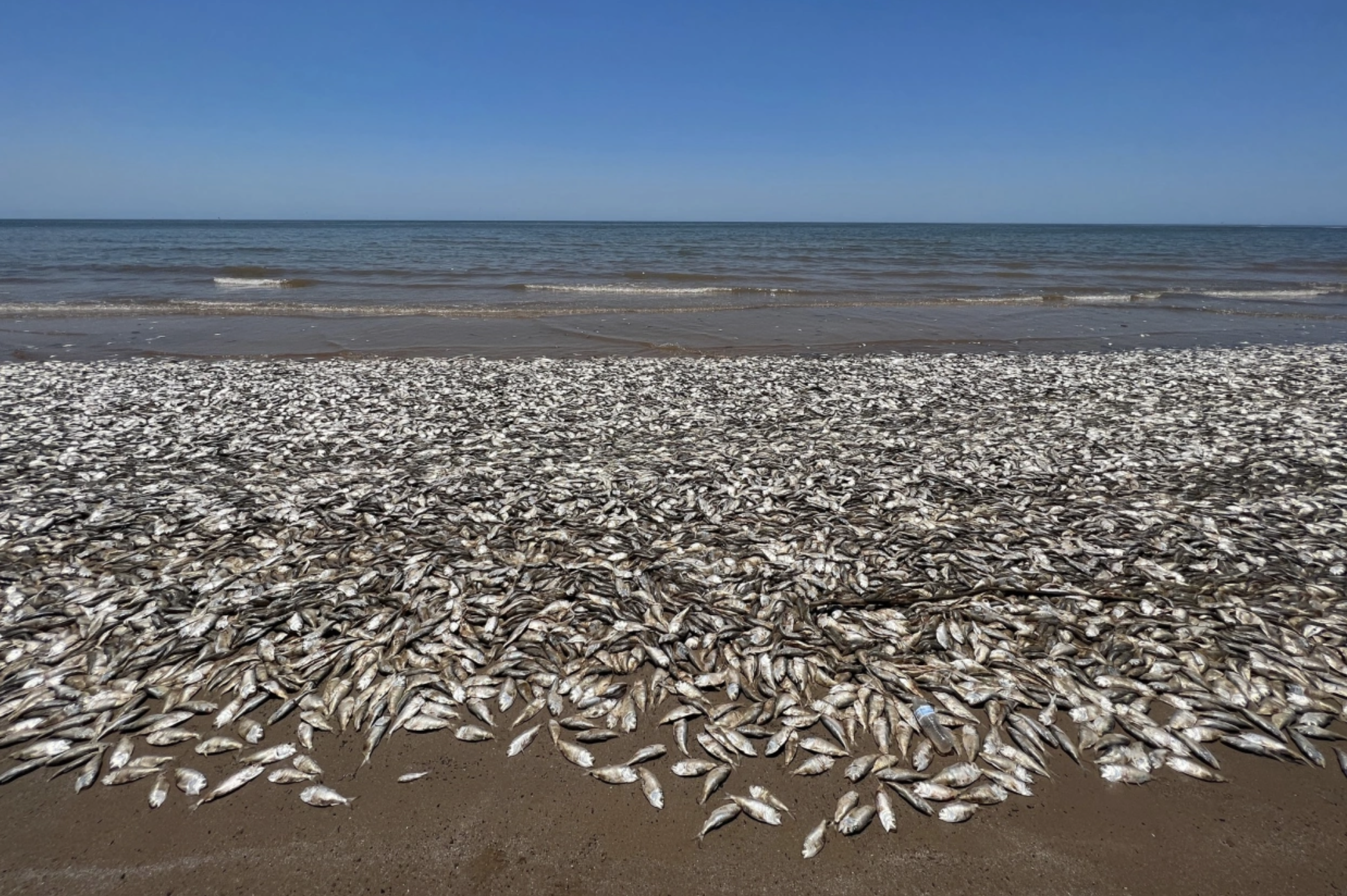
Thousands of fish perished along the Texas Gulf Coast in June, raising concerns among hurricane forecasters and climate scientists.
The fish kill (a sudden mass mortality of wild fish) will have an effect on the largest fishery yield in the Gulf of Mexico. The cause of the event has been identified as a low dissolved oxygen event, which was likely due to increased temperatures.
While fish kills are common in the summer, the magnitude of this event has been described as a ‘fish apocalypse’. The affected species, Gulf Menhaden, is a vital source of food for larger fish and marine mammals and plays a significant role in the Gulf of Mexico’s ecosystem.
Officials have responded to the event, and cleanup efforts are underway. However, the long-term impact on the Gulf’s ecosystem and the future implications of such events remains a concern for scientists and policymakers.
- Thousands of dead fish washed up along the Texas Gulf Coast due to low dissolved oxygen event
- A “fish kill” on a Gulf Coast beach near Houston was caused by low dissolved oxygen levels in the water due to summer temperatures
- Low oxygen levels make it difficult for the fish to “breathe” underwater
- Gulf Menhaden has the largest fishery yield in the Gulf of Mexico is the most impacted species
Cause of the Event
The recent fish kill along the Texas Gulf Coast was caused by a low dissolved oxygen event. This event was most likely triggered by increased temperatures, which reduced the oxygen-carrying capacity of the water.
Low dissolved oxygen events are common in the summer when temperatures increase, and they can occur naturally. Gulf Coast waters are warmer due to climate change, which is concerning as it may lead to more frequent and severe events.
The Gulf Menhaden species is particularly important as it has the largest fishery yield in the Gulf of Mexico and supports the second largest fishery by weight in the US. Understanding the cause of this fish kill is critical to ensure the sustainability of this vital species and the Gulf’s overall ecosystem.
Impact on Gulf Menhaden
Gulf Menhaden, a commercially important species in the Gulf of Mexico, was the most impacted by this event. This is of concern given its significance to the Gulf of Mexico’s fishing industry.
Gulf Menhaden has the largest fishery yield in the Gulf of Mexico and supports the second largest fishery by weight in the US. Its decline could have significant economic and ecological consequences.
There are concerns about the future of Gulf Menhaden and the fishing industry that depends on it, as well as the broader impact of climate change on marine ecosystems.
Response and Future Concerns
Efforts to address the root cause of the recent fish kill along the Texas Gulf Coast are necessary to prevent future occurrences and safeguard the economic and ecological health of the Gulf of Mexico’s fishing industry.
Texas officials have responded to the event by coordinating cleanup efforts and investigating the cause of the fish kill.
The warming Gulf waters through climate change may have contributed to the event, and this raises concerns about the future of the Gulf’s fishing industry.
To prevent future occurrences, it is necessary to address the root cause of the low dissolved oxygen event, which can be a natural occurrence exacerbated by climate change.
Measures to mitigate the effects of climate change, such as reducing greenhouse gas emissions, are crucial to protect the Gulf’s fishing industry and its ecological health.
Visit our Business Certification page for more information on how you can become part of the solution for climate change.


